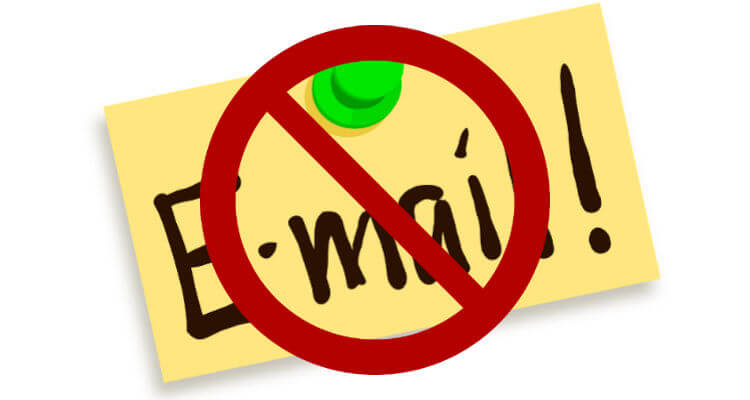Why SESTA/FOSTA Bans Adult Content in Private Email Newsletters
In the wake of the new bills, sex educators and activists are getting kicked off of mainstream social platforms.

When BDSM educator Tara Indiana opened her inbox on her birthday, she expected to receive a few well-wishes and celebratory emails.
What she didn't expect was a message informing her that her Mailchimp account had been shut down for violating the company’s Acceptable Use policy.
“They don't give you an explanation and there are no second chances. You're just locked out with no access to your data,” Indiana told Future of Sex.
“The most shocking aspect is that this wasn't an ad on a public platform. This was my private correspondence to the people who had signed up for my newsletter.”
Indiana has worked as a Dominatrix for more than 30 years but retired in 2016 to pursue teaching and advocating for sex workers' rights full time. Of her 5,500 Mailchimp subscribers, 1,500 were students who regularly attended her classes on the Art of Female Domination.
Read more: 4 Email Newsletter Services That Won’t Ban You for Adult Content
What the ffff…OSTA?
Prior to her newsletter ban, Indiana had also lost access to about 70% of the websites and social media platforms that she had used to promote her classes. Her new blacklisted status is due to the 2018 dual bill SESTA/FOSTA, or the Stop Enabling Sex Traffickers Act and Fight Online Sex Trafficking Act.
Presented to the public as a way to curb online sex trafficking; the bills actually harm the people they’re supposed to protect, largely because their sweeping language doesn’t differentiate between sex trafficking and consensual sex work or any related content. It also makes online platforms legally responsible for any user-generated content pertaining to sex.
As explained in an article at Vox:
Instead of directly targeting websites known to facilitate sex trafficking, the SESTA-FOSTA hybrid essentially sets up a template for ‘broad-based censorship’ across the web.
Writer Aja Romano argues the bills weaken “a famous and longstanding ‘safe harbor‘ rule of the internet: Section 230 of the 1996 Communications Decency Act…. Section 230 has allowed the internet to thrive on user-generated content without holding platforms and ISPs responsible for whatever those users might create.”
After SESTA/FOSTA passed, websites immediately began eliminating adult-related content from their platforms for fear of being held liable under the new law, consequently silencing countless sex workers, artists, activists, and anyone using sexual language flagged through keyword searches and hashtags.
“I’m not even technically or legally a sex worker any longer. I’m an educator,” Indiana said
I use my platforms to promote my classes and my political activism. But because I teach within the BDSM community and use words like fetish or kink in my newsletter, I’m targeted under the law just for informing my students about those classes.
Indiana added that SESTA/FOSTA does little to stop online trafficking because by censoring all adult content, it subsequently deletes the digital trail that used to exist on social platforms and websites. This information helped aid in identifying online sexual predators and human trafficking rings.
Not only does the law push sex traffickers further underground, it forces consensual sex workers back onto the street because it’s taken away their ability to safely screen clients online and share information with their peers.
While SESTA/FOSTA puts marginalized communities at greater risk (there's been a significant uptick in street prostitution and violence against sex workers since 2018, according to SF Bay Area officials) Indiana added that “anyone who cares about the freedom to share and distribute information or content online without censorship is impacted by this law.”
Image source: Clker-Free-Vector-Images, OpenClipart-Vectors
Leave a reply
You must be logged in to post a comment.

















